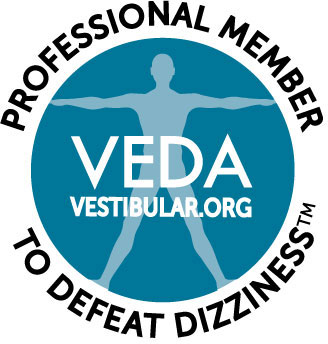Do you experience frequent bouts of dizziness, particularly when you’re in an enclosed space like a mall or grocery store? Do you find yourself becoming anxious in crowded situations? If so, you may be suffering from a condition known as binocular vision dysfunction, which results from a disruption to the vertical alignment of your eyes.

Binocular vision dysfunction is one of the leading causes of dizziness, but if you’ve ever sought relief for your symptoms from a doctor, it’s unlikely they would have mentioned it. Dizziness and anxiety are symptoms that overlap with many other disorders unrelated to vision, and most medical practitioners lack the specialized training and equipment to diagnose binocular vision dysfunction.
Understanding Binocular Vision Dysfunction
The sense of sight is an intricate and elaborate process, with many moving parts. Integral to your ability to see clearly are little muscles in your eyes called extraocular muscles, which control the movement of your eyes. These muscles make sure your eyes are moving in perfect alignment, so that they are able to relay one clear picture (rather than double images) to your brain.
Various factors including genetics, strokes, neurological conditions and injuries can compromise the vertical alignment of your eyes. When this happens, your extraocular muscles have to work harder to keep your eyes moving in sync so you can still see clearly. Over time, these muscles can become strained and fatigued—leading to a number of highly uncomfortable symptoms including headaches, dizziness, anxiety, trouble concentrating and general clumsiness. This is binocular vision dysfunction.
How Binocular Vision Dysfunction Triggers Dizziness
Certain situations exacerbate the symptoms of binocular vision dysfunction. Individuals with this disorder often experience dizziness in the following situations:
-
Sitting in the passenger seat of a vehicle
-
Driving around bends and curves
-
Being passed by another car while driving
-
Being in large, crowded buildings with high ceilings
-
Standing up too quickly
-
Moving your head up and down or from side to side
If you find that you tend to experience dizzy spells in any of the situations above, you should visit Neuro Visual Center of New York to be tested for this disorder.
Treatment from Neuro Visual Center of New York
Diagnosing binocular vision dysfunction requires knowledge, training and special equipment that regular eye doctors typically don’t have. Dr. Cheryl Berger Israeloff has 20 years of experience diagnosing eye misalignment conditions, and her treatments have been life-changing for countless people.
When you come to The Neuro Visual Center of New York, Dr. Israeloff will perform a specialized exam to test for binocular vision dysfunction. The disorder is treated with custom aligning prismatic lenses, which we can provide via eyeglasses or sometimes even contact lenses. These lenses correct the misalignment in your eyes and relieve the straining in your extraocular muscles.
Contact Us
Put a stop to dizziness, headaches and other uncomfortable symptoms of binocular vision dysfunction. Call us today at (516) 224-4888 to learn more about binocular vision dysfunction and how treatments can significantly improve your quality of life.





